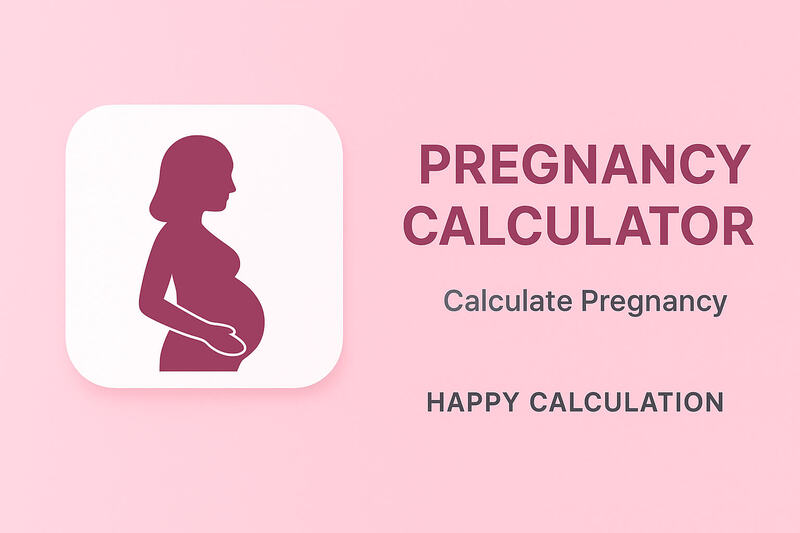Pregnancy Calculator: Calculate Your Pregnancy To Due Date Accurately
Track your baby's development week-by-week and get personalized pregnancy information
Calculate Your Pregnancy Timeline
Your Pregnancy Timeline
Due Date
-
Current Week
-
Trimester
-
Days to Go
-
Calculators
Pregnancy Information
📅 First Trimester (Weeks 1-13)
Early fetal development begins. You may experience morning sickness, fatigue, and breast tenderness.
📅 Second Trimester (Weeks 14-27)
Often called the "honeymoon period" of pregnancy. Most women feel more energetic and begin to show.
📅 Third Trimester (Weeks 28-40)
Baby grows rapidly. You may experience more discomfort, shortness of breath, and frequent urination.
💡 Important Tips
Take prenatal vitamins, stay hydrated, eat nutritious foods, and attend all prenatal appointments.
Note: This calculator provides estimates only. Always consult with your healthcare provider for accurate pregnancy dating and personalized medical advice.

Pregnancy Guide: Essential Information for Expectant Mothers
Early Pregnancy Symptoms
Common early signs include morning sickness, fatigue, and food aversions. Most symptoms peak around week 9.
Week-by-Week Development
From embryo to full-term baby, follow important milestones in each week of pregnancy with our tracker.
Nutrition During Pregnancy
Essential nutrients include folic acid, iron, calcium, and DHA. Avoid raw fish, unpasteurized dairy, and limit caffeine.
Preparing for Labor
Understand the signs of labor, stages of childbirth, and how to prepare your body and mind for delivery.
Frequently Asked Questions
Due date calculators provide an estimate based on your last menstrual period. While typically accurate within a week or two, only about 5% of babies are born on their exact due date.
Gestational age is measured from the first day of your last menstrual period, while fetal age refers to the actual age of the developing baby, which is typically about two weeks less.
Most home pregnancy tests can detect pregnancy as early as the first day of your missed period. For accurate results, wait until at least one week after your missed period.
Folic acid is crucial in early pregnancy to prevent neural tube defects. Iron, calcium, vitamin D, and DHA are also important throughout pregnancy.